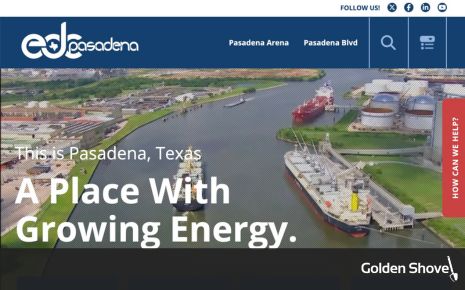12 Questions to Ask When Developing an Economic Development Strategy

24 Feb 2025
News, Strategic Plan
Formulating an effective economic development strategy requires asking a full range of questions to identify community needs and priorities. Comprehensive economic development plans should address pressing and long-term needs in a community. Collaborating with key stakeholders ensures challenges and opportunities across all community sectors are acknowledged and considered as strategies are solidified. Golden Shovel Agency knows the questions to ask and the data to review to develop the most substantial economic development strategies and related plans.
12 questions to ask when developing an economic development strategy
1. Who are the key stakeholders in the region?
The first inquiry should always focus on community involvement to gather the best answers to other questions. Economic development organizations and other entities should assemble leaders in local government, businesses, non-profits, and educational institutions for panels and strategy sessions. Community members should also participate via discussions or a survey to diversify participation.
2. What makes our community special?
The first letter in the classic SWOT, or strengths, weaknesses, opportunities, and threats, analysis is served by this question. It’s an easy question, but proper facilitation can lead to better results. Help participants embrace the concept of no wrong answers to identify emerging trends or fading strengths.
3. What economic challenges are we facing?
Sometimes, economic development strategy planning sessions spend a lot of time on strengths and minimizing the identification of weak points. Take a critical look at local issues. Are skilled worker numbers declining, downtown businesses shuttering, or infrastructure challenges making recruitment difficult? Accept and validate difficult feedback for your plans.
4. What transportation systems are available?
Transportation options are essential for workforce development, where public transit is necessary. Shipping access also heavily influences business and manufacturing recruitment at all levels. Assess highway, rail, and other transit opportunities for raw materials and goods. Analyze and document availability to help set attainable economic development goals.
5. What other infrastructure advantages do we offer?
Infrastructure doesn’t start and end at transit. Capacity in local water systems and treatment facilities demonstrates a city poised for growth. Community-wide access to high-speed internet can be a major incentive for personal or business relocation in a rural area. Take all assets into consideration when planning economic development strategies.
6. Can we improve processes to be more business-friendly and encourage entrepreneurship?
Supporting small businesses is an essential component of economic development strategies, and it’s important to foster new growth while retaining existing enterprises. Assess local government procedures, from permitting and sales tax collection to available development resources, to identify opportunities for improvement.
7. What’s our culture?
Your local identity may emerge as a strength in the SWOT analysis, but it’s important to consider culture individually. Identifying the shared experiences setting the local community apart can help shape strategic plans respectful of the existing culture while building fresh energy.
8. Does our educational system aid economic development?
Education is essential for workforce development and creating a talent pipeline for existing and emerging jobs in the community. Use this question to examine the programs and initiatives secondary schools, technical schools, and colleges have in place to promote local economic growth. If there are a minimum of ongoing projects, brainstorm ways to collaborate for future success.
9. Are there opportunities for partnerships?
Educational institutions, tourism boards, and other entities focused on economic development can be valuable partners for certain projects. Identify areas of development where partnerships make the most sense and consider ways to share resources and expertise.
10. Are our plans inclusive?
As your region is assessed and economic development strategies crafted, find ways to be more inclusive. Incorporate a true cross-section of the community into the planning phases and ensure all voices are given ample consideration and input.
11. How will we measure successes and opportunities for improvement?
Key performance indicators, or KPIs, should be set for each goal derived from economic development strategy sessions. What those look like can vary based on the unique needs of a town or city. For example, a rural community may determine local business expansion and workforce retention and use related metrics to assess success. Conversely, a mid-sized city may prefer tracking the opening of new businesses or new jobs created.
12. Do we need help?
After asking the best questions to formulate economic development strategies, determine if your economic development organization needs help for additional development and implementation of a strategic plan. Whether you employ an outside agency, acquire new talent to focus on goals, or redistribute essential tasks to existing staff and partners, stay focused.
Golden Shovel Agency will assist your organization throughout the strategic planning process. Contact us today to review services.
More Topics


Different Tropes for Different Folks: Grapevine’s Shopping Districts Partner Up With Romance Themes
Feb 12 2025


